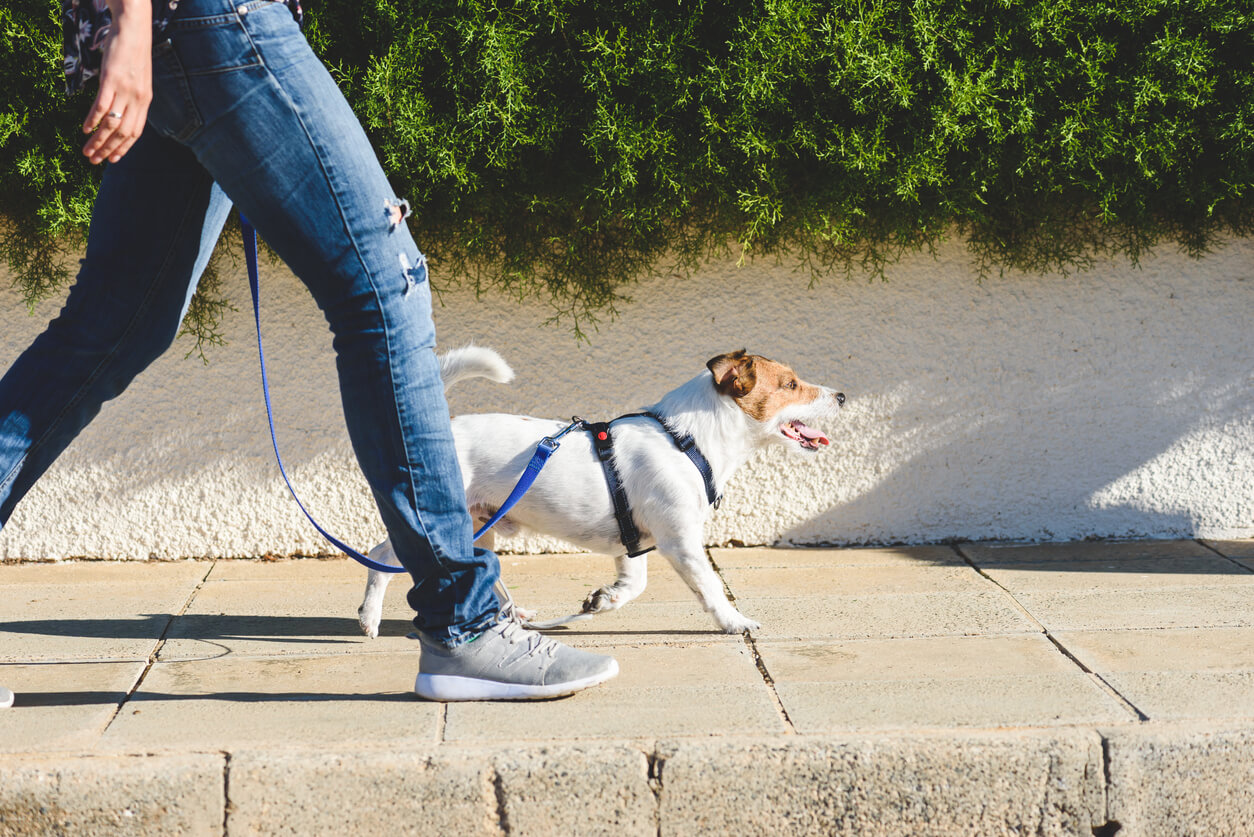Dog lovers around the Chicago area are closely following the case of Jordan, a DuPage County rescue pup who the government has labeled a “dangerous” dog. While the label may be impacting Jordan’s quality of life, will it carry any weight if Jordan’s caretakers are ever sued over his behavior?
Jordan the “Dangerous” Dog
Jordan is a 9-year-old rescue dog that has been identified as a cross between a pit bull and a boxer. He is owned by a nonprofit rescue organization called Pets and Vets USA and fostered by a Marine Corps veteran.
After allegedly attacking a much smaller Shih Tzu-Pomeranian mix at a Bloomingdale PetSmart two years ago, Jordan was labeled a “dangerous” dog by county officials. He must now wear a muzzle when he’s in public and is not allowed off-leash outside of his own home and backyard.
The founder of Pets and Vets USA is challenging the county’s decision to label Jordan as dangerous. According to the Chicago Tribune, around 50 dogs in Jordan’s home county of DuPage are declared dangerous each year. Two or three dog owners try to fight the label in court, but they rarely win.
What Does Dangerous Actually Mean?
Under Illinois law (510 ILCS 5/2.05a), a “dangerous dog” is:
(i) any individual dog anywhere other than upon the property of the owner or custodian of the dog and unmuzzled, unleashed, or unattended by its owner or custodian that behaves in a manner that a reasonable person would believe poses a serious and unjustified imminent threat of serious physical injury or death to a person or a companion animal or
(ii) a dog that, without justification, bites a person and does not cause serious physical injury.
Once a county declares a dog “dangerous,” the dog’s owner must, under Illinois law (Section 510 ILCS 5/15.1):
- pay a $50 public safety fine to be deposited into the county animal control fund,
- spay or neuter the dog within 14 days, at the owner’s expense, and
- microchip the dog.
If it deemed appropriate under the circumstances, and necessary for the protection of the public, the county can also require:
- evaluation of the dog by a certified applied behaviorist, a board-certified veterinary behaviorist, or another recognized expert in the field and completion of training or other treatment as deemed appropriate by the expert. The owner of the dog shall be responsible for all costs associated with evaluations and training ordered under this subsection; or
- direct supervision by an adult 18 years of age or older whenever the animal is on public premises.
The county may also order the dog to be muzzled whenever it is on public premises. This requirement is one of the reasons why Jordan’s owner is trying to get the dangerous dog determination overturned. He claims Jordan has a hard time breathing while wearing a muzzle.
If the owner fails to comply with the county’s demands under the state’s dangerous dog law, the dog may be impounded.
Note, all of the above is just Illinois state law, cities and villages are allowed to impose additional requirements, and many of them choose to do so.
What Happens When a Dangerous Dog Bites Someone?
One of the interesting things about Illinois’s dangerous dog law is that it has relatively little impact on our state’s dog bite liability laws. Just because a dog is deemed “dangerous” doesn’t mean it is automatically easier to seek damages if that dog later attacks someone.
To seek compensation for a dog bite under Illinois law, you must be able to prove:
- That the owner or manager was negligent in training or restraining the animal;
- That the dog attacked you without provocation;
- That you suffered serious injuries as a result;
- That you were in a place you were allowed to be (e.g. not a burglar or peeping Tom);
- That the dog that bit you was not a law enforcement dog performing its duty; and
- That you did not consciously “assume risk”, for instance by being a professional dog trainer or veterinarian.
Sometimes the information gathered by the county as it seeks to label a dog dangerous can be used as evidence in a later dog bite case. However, Illinois dog bite liability law focuses on the circumstances surrounding the bite, so it may not matter that the dog is “dangerous.”
If you or a loved one has been attacked by a dog — “dangerous” or not — and suffered serious injuries, the Stein & Shulman team here to help. We have decades of experience seeking justice and compensation on behalf of dog bite victims. Please contact us today to schedule a free initial consultation.

